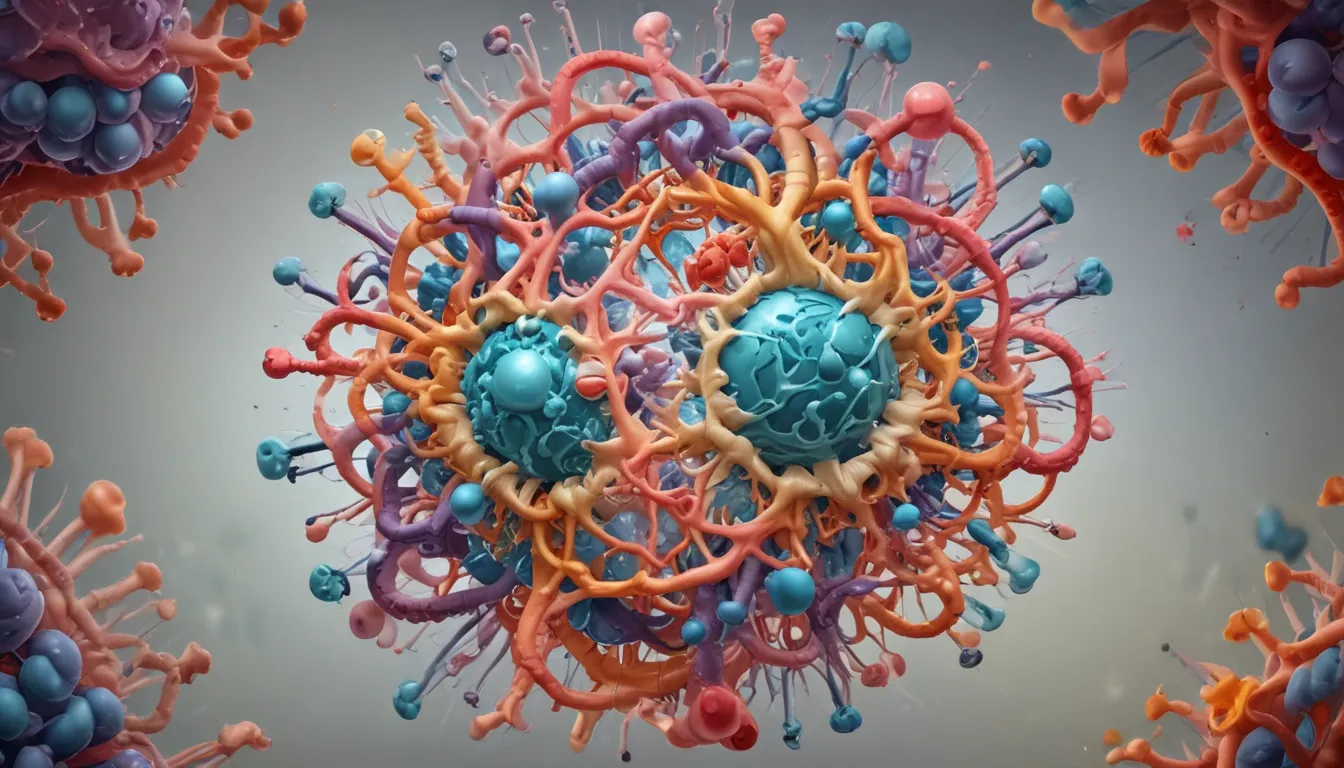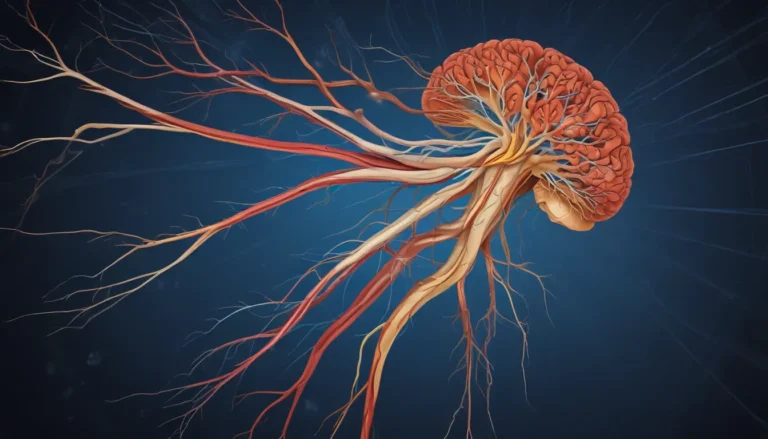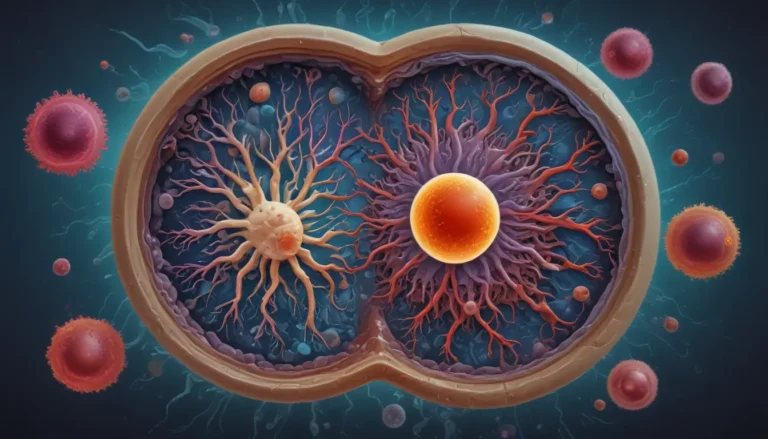A Note About Images: The images used in our articles are for illustration purposes only and may not exactly match the content. They are meant to engage readers, but the text should be relied upon for accurate information.
Welcome to the captivating world of molecular biology techniques, where the mysteries of life are unraveled at the molecular level. From the groundbreaking invention of PCR to the revolutionary CRISPR-Cas9 gene editing tool, these techniques have reshaped biology and paved the way for remarkable discoveries in various scientific fields. In this article, we will explore 20 astounding facts about molecular biology techniques that showcase their vital role in scientific research and their unparalleled potential for transforming our understanding of life itself.
Delving Into the Marvels of Molecular Biology Techniques
Molecular biology techniques encompass a diverse array of methods that involve the manipulation and analysis of molecules such as DNA, RNA, and proteins. These techniques enable researchers to delve deep into the intricate workings of living organisms, unlocking the secrets of life at the molecular level. Let’s embark on a journey through the world of molecular biology techniques and discover the astonishing facts that highlight their significance in scientific research.
Understanding the Cornerstone Techniques
-
Polymerase Chain Reaction (PCR): PCR stands as a cornerstone technique that allows for the amplification of specific DNA sequences, playing a crucial role in applications such as diagnostic testing, genome sequencing, and forensics.
-
Next-Generation Sequencing (NGS): NGS techniques have revolutionized genomics by enabling rapid and cost-effective sequencing of entire genomes, paving the way for personalized medicine and advancing our understanding of genetic diseases.
-
CRISPR-Cas9 Gene Editing: CRISPR-Cas9 has opened up new avenues for gene editing, offering precise modifications to specific genes with the potential to treat genetic disorders and enhance agriculture.
Exploring the Versatility of Molecular Biology Techniques
-
DNA Fingerprinting: Widely used in forensic investigations, DNA fingerprinting analyzes unique DNA patterns to identify individuals, aiding in criminal investigations and resolving paternity disputes.
-
Fluorescence In Situ Hybridization (FISH): FISH visualizes specific DNA sequences using fluorescent probes, enabling researchers to study gene expression and chromosomal abnormalities with precision.
-
Reverse Transcription-Polymerase Chain Reaction (RT-PCR): RT-PCR measures gene expression levels by quantifying mRNA levels, offering insights into gene regulation and disease progression.
-
Western Blotting: This technique detects specific proteins by separating and identifying target proteins, providing valuable insights into protein expression, post-translational modifications, and protein-protein interactions.
Embracing Cutting-Edge Technologies
-
Genomic Editing: Utilizing CRISPR-Cas9 and base editors, genomic editing offers precise genetic modifications with the potential to treat genetic diseases and engineer desirable traits in crops.
-
Flow Cytometry: This technique analyzes cells based on their physical and chemical properties, enabling the examination of individual cells and aiding in cell sorting, cell cycle analysis, and immunophenotyping.
-
Proteomics: Investigation into the entire complement of proteins, proteomics provides insights into cellular processes, disease mechanisms, and potential therapeutic targets.
Unveiling the Intricacies of Molecular Biology Techniques
-
Gene Cloning: Gene cloning allows for the replication of specific DNA sequences, producing multiple copies of a specific gene for further study and experimentation.
-
In Situ Hybridization: By visualizing gene expression in tissue sections, in situ hybridization uses labeled RNA or DNA probes to pinpoint the exact location of gene expression in cells and tissues.
-
Microarray Technology: Microarrays enable the simultaneous analysis of thousands of genes, offering a high-throughput approach to study gene regulation in various biological processes and diseases.
Advancing Discoveries Through Molecular Biology Techniques
-
DNA Barcoding: By identifying species through specific genetic markers, DNA barcoding enables rapid and accurate species identification, benefiting biodiversity monitoring and conservation efforts.
-
Immunohistochemistry: This technique visualizes protein expression in tissues using labeled antibodies, aiding in the diagnosis and characterization of various diseases, including cancer.
-
RNA Interference (RNAi): RNAi silences gene expression using small RNA molecules, providing insights into gene function and potential therapeutic applications.
Enhancing Research and Development
-
Enzyme-Linked Immunosorbent Assay (ELISA): This widely used technique detects and quantifies target molecules in biological samples, facilitating disease diagnosis and drug development.
-
Mass Spectrometry: Mass spectrometry identifies and characterizes proteins based on their mass-to-charge ratio, aiding in proteomic research and biomarker discovery.
-
Fluorescence Resonance Energy Transfer (FRET): FRET measures molecular interactions based on energy transfer, providing insights into protein-protein interactions, DNA-protein interactions, and molecular signaling pathways.
Embracing the Evolution of DNA Sequencing Technologies
- Advancements in DNA Sequencing: Technologies such as single-molecule sequencing and nanopore sequencing continue to evolve, expanding our ability to accurately analyze and interpret genomic information.
Reflecting on the Marvels of Molecular Biology Techniques
In conclusion, molecular biology techniques stand as pillars of scientific research, unveiling the intricacies of living organisms at the molecular level. The 20 astounding facts highlighted in this article showcase the remarkable power and potential of these techniques, from PCR to CRISPR-Cas9, in shaping the future of biology and driving advancements in medicine, genetics, and beyond. As we witness technological advancements propel the field of molecular biology to new heights, the possibilities for groundbreaking discoveries and transformative innovations are endless.
Frequently Asked Questions
- Q: What is molecular biology?
-
A: Molecular biology focuses on the study of biological molecules, including DNA, RNA, proteins, and lipids, examining their structure, function, and interactions.
-
Q: What are some common molecular biology techniques?
-
A: Common techniques include PCR, DNA sequencing, gel electrophoresis, Western blotting, and gene cloning.
-
Q: What is the purpose of DNA sequencing?
-
A: DNA sequencing determines the order of nucleotides in a DNA molecule, providing insights into genes, genetic variations, and evolutionary relationships.
-
Q: How does PCR work?
-
A: PCR amplifies specific DNA segments through a series of heating and cooling steps that copy the DNA, allowing for analysis.
-
Q: How does CRISPR-Cas9 gene editing work?
-
A: CRISPR-Cas9 uses RNA to guide an enzyme called Cas9 to specific DNA sequences for precise modifications, holding potential for genetic disorder treatments.
-
Q: What are the applications of molecular biology techniques?
-
A: These techniques have diverse applications, ranging from genetic disease diagnosis to drug development, forensic analysis, agriculture, and studying evolutionary relationships.
-
Q: Are molecular biology techniques only used in research labs?
-
A: While extensively used in research, these techniques also find applications in industries like pharmaceuticals, agriculture, and diagnostics.
-
Q: How have molecular biology techniques contributed to medical advancements?
- A: These techniques have advanced disease understanding, identified genetic causes of disorders, developed personalized medicine, and improved diagnostic test efficiency.
As we continue our exploration of molecular biology techniques, we embrace the wonders of scientific discovery and innovation, uncovering the profound impact of these techniques on our understanding of life. Join us on this journey of knowledge and exploration, where the possibilities of molecular biology techniques are boundless.






